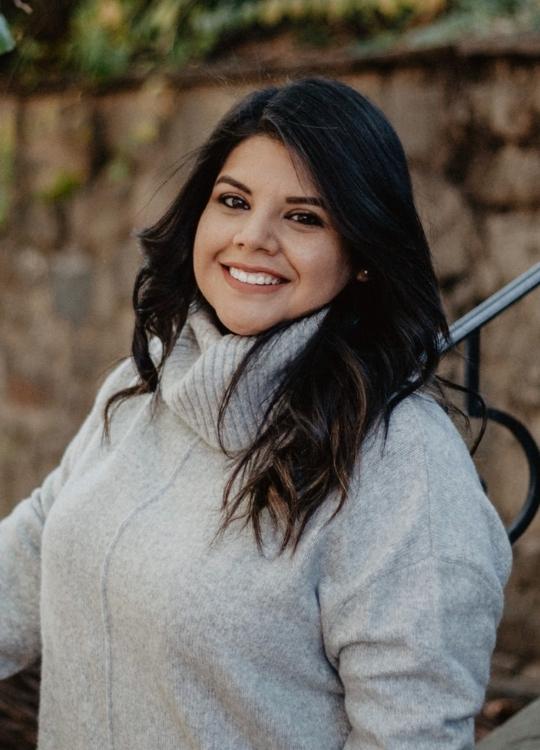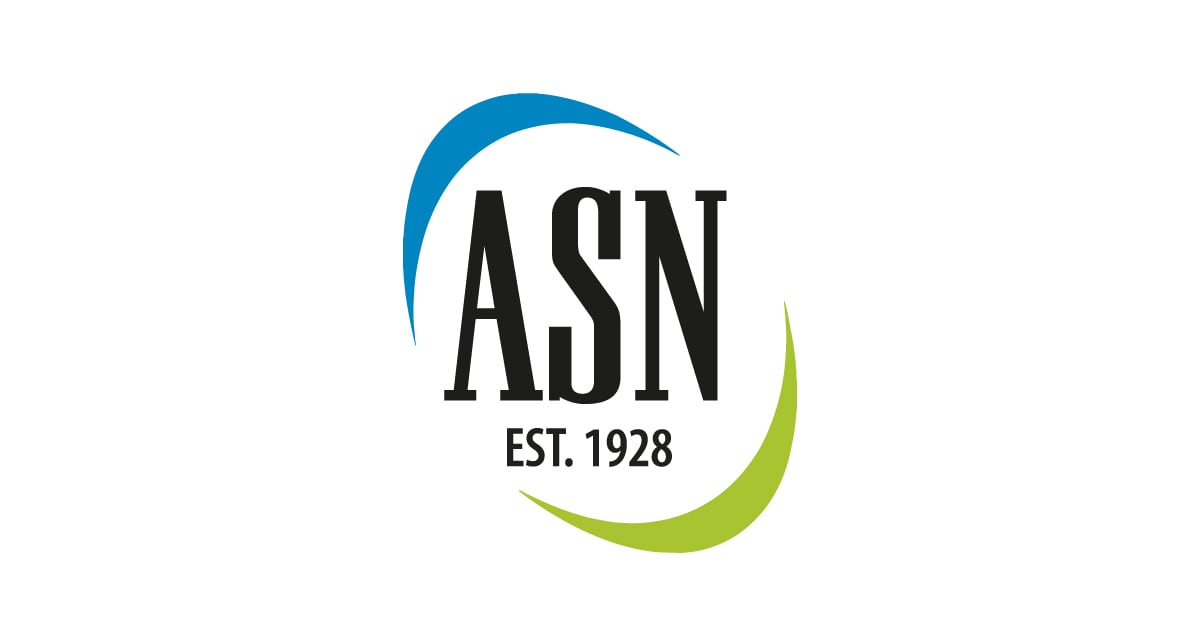The ASN Science Policy Fellowship is offered to advanced graduate students, early professionals, postdoctoral trainees, or medical interns, residents, or fellows. The intent of the Fellowship is to allow for an expanded understanding of current nutrition policy issues and initiatives. The Fellowship provides recipients with the opportunity to gain an enhanced perspective on public policy issues related to nutrition and facilitates the acquisition of skills and tools necessary to become well-informed advocates for nutrition research and policy.
Elder Garcia Varela is one of two current fellows. She is a a doctoral candidate and graduate research fellow at the University of Florida. She has been a member of ASN since 2020. Read our full interview below.

How did you first get involved in nutrition science and research? What led you to be interested in nutrition policy?
Ever since I can remember, my dad was involved in public policy work, specifically leading efforts impacting vulnerable populations in Peru. I always knew I wanted to follow in his footsteps and study health and social policy. Through research and evaluation, it was important for me to highlight how the social determinants of health strongly influence policies (i.e., those governing wages, housing, food and agriculture, and transportation) contributing to the health and social inequities and disparities. It wasn’t until after I graduated with my Master’s in Political Science – Public Affairs & Administration at the University of Florida that I got more involved in nutrition science and research. After graduation, I joined the UF/IFAS Family Nutrition Program (FL SNAP-Ed) evaluation team, which opened various opportunities for obesity prevention research. Ultimately, this work ignited my passion for a career that could help translate research into policy and practice. After five years of working in the field, I decided to apply to the University of Florida’s doctoral program in Health and Human Performance. I knew I wanted to continue my work in community nutrition and study the factors that directly and indirectly influence individuals and groups to engage in healthful practices, mainly eating and physical activity behaviors. My ultimate career goal is to support developing, implementing, evaluating, and disseminating nutrition and food security efforts supporting healthy eating, active living, and chronic disease prevention.
Tell us about your current position and the research activities in which you are involved.
I am a third-year doctoral candidate and graduate research fellow pursuing a degree in Health and Human Performance with a concentration in Health Education and Behavior and a minor in Research and Evaluation Methodology at the University of Florida. My focus is on community nutrition research and outreach related to nutrition education and food security. Specifically, exploring how multiple factors influence dietary behavior to inform the development of corresponding interventions to improve health in underserved populations. I am currently working on my dissertation research, which focuses on evaluating PSE change interventions designed to improve food security and health outcomes of SNAP-eligible households through access to affordable and nutritious foods.
Aside from my dissertation, I work with my advisor, Dr. Amy Mobley, on various Nutrition Education and Behavioral Science Lab projects. A few of these include (1) the development and usability testing of mHealth nutrition education apps; (2) creation of dietary guidance and feeding messages for low-income individuals and households with young children.; and (3) formative research to impact the impact of COVID-19 on families with young children experiencing food insecurity. Additionally, I conduct research with Dr. Karla Shelnutt on using community-based participatory research to develop and validate tools to evaluate the healthfulness of different campuses and communities.
Aside from my academic work, I am the 2021-2022 Policy Fellow of the Food and Nutrition Section of the American Public Health Association (APHA). Currently, I am helping draft and develop the 2023 Farm Bill Policy Memo.
What do you feel are the biggest challenges facing nutrition researchers today?
I believe there is an existing gap between research evidence, policy, and practice. I firmly believe policy action and multilevel interventions will ultimately improve health outcomes for all populations. Additionally, I think there is a lack of effective communication practices among key stakeholders. It is essential to disseminate and translate research into actionable policies and evidence-based programs and make sure the target population is aware of the available opportunities that support healthful practices.
What influenced your decision to apply to the ASN Science Policy Fellowship program? How do you see yourself benefitting from this position?
Earlier this year, I had the opportunity to attend APHA’s Policy Action Institute. Hearing influential speakers discussing relevant public health topics ignited my desire to seek leadership and professional development opportunities to acquire the skills necessary to become a well-informed advocate for nutrition research and policy. I firmly believe the ASN Science Policy Fellowship offers a unique and valuable opportunity to work closely with nutrition policy and advocacy experts. This fellowship has provided early professionals a platform to enhance their leadership and advocacy skills through professional development opportunities and experiential learning throughout the years. As a doctoral student, it is imperative to effectively disseminate evidence-based information and advocate for health prevention and promotion strategies. I am confident the ASN Science Policy Fellow will strengthen current skills to engage in discussions promoting community action and policy change.
What aspects of ASN membership have you found most useful professionally?
If I had to pick my top two, they would be the ASN Health and Nutrition Policy Newsletter and ASN webinars. I think anybody with a busy schedule appreciates having a piece of communication that highlights and summarizes key content, including the latest congressional and administrative actions. In addition, the webinars provide valuable information and training for early career professionals and essentially anybody looking for professional development. Overall, if you are part of the listserv, you constantly receive timely information regarding funding opportunities and/or published research. I would highly recommend subscribing!
Is there anything else you’d like to tell ASN members, especially students?
Believe in yourself! Not because you are a student, your opinion is less valuable. Seek out opportunities to enhance your professional and personal growth. You never know the doors these opportunities could open. Also, never stop networking. I firmly believe networking is fundamental at any stage of your career— for collaboration, dissemination, or to develop simple connections. Don’t be shy! Those influential people in the field you look up to have already been in your shoes and probably felt the same way you are currently feeling. From personal experience, most of the people I’ve reached out to have been open to providing advice and discussing professional opportunities as well as their research.



